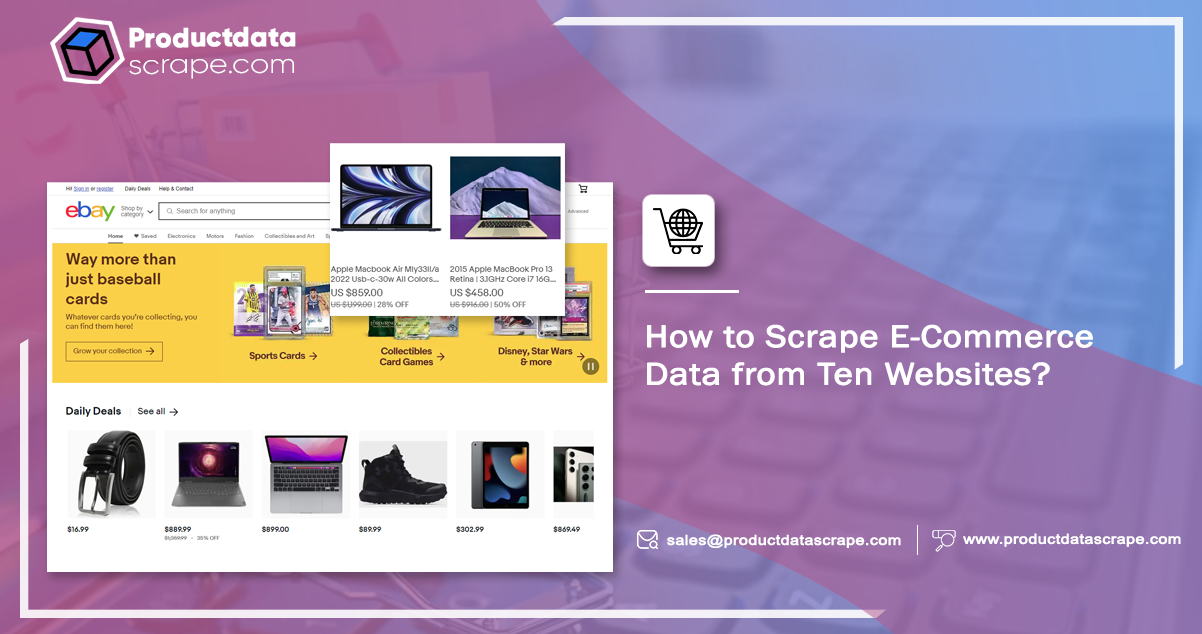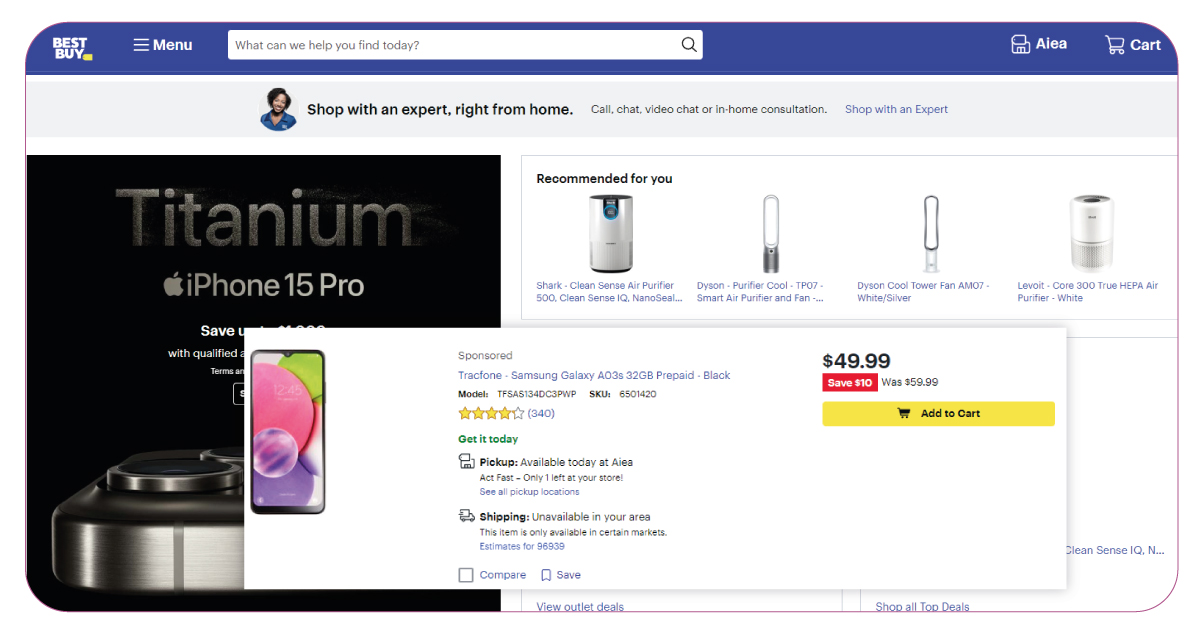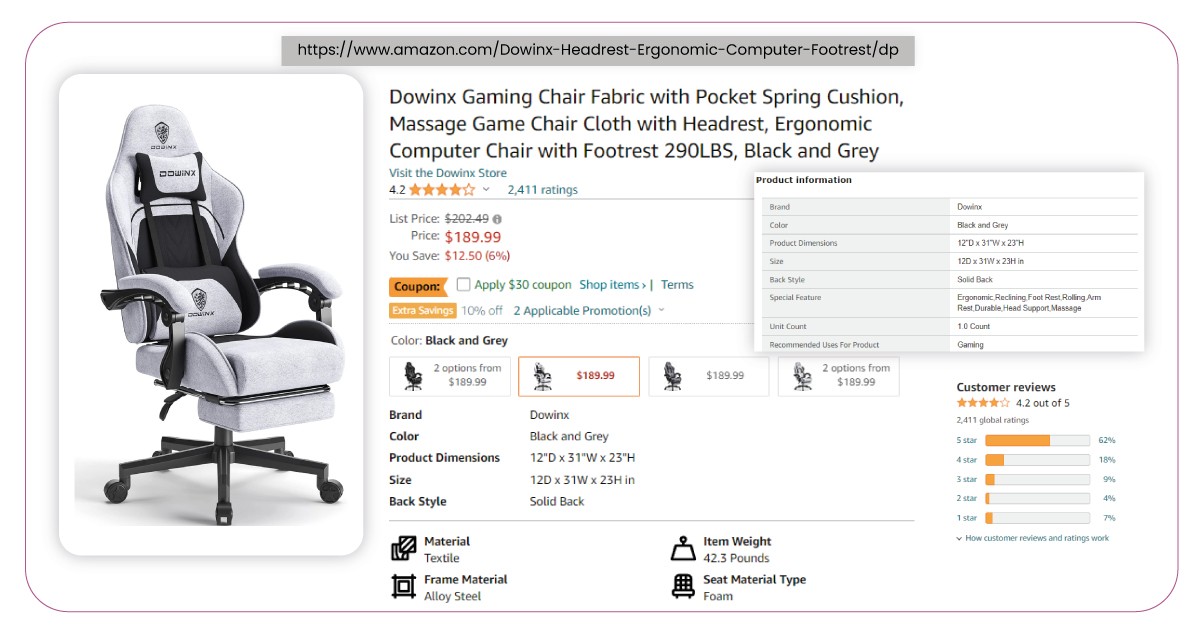
In today's digital age, e-commerce has revolutionized our shopping, offering
unparalleled convenience and access to various products and services. With millions of consumers
navigating e-commerce websites daily, these platforms have become treasure troves of valuable
data. Scrape e-commerce data from ten websites to help businesses harness this wealth of
information for competitive analysis, market research, pricing optimization, and more. Enter
e-commerce data scraping.
E-commerce data scraping is a sophisticated and efficient technique that allows
businesses to extract, collect, and analyze data from online retail websites. This process
involves automated tools and methods to gather critical information, such as product details,
pricing, customer reviews, stock levels, and more, directly from e-commerce websites. The
extracted data can then be structured, cleaned, and analyzed to provide actionable insights,
driving informed decision-making.
This article delves into e-commerce data scraping, exploring its significance,
methods, tools, and real-world applications. Whether you're a business looking to gain a
competitive edge or a data enthusiast eager to uncover digital marketplace trends, web scraping
e-commerce data offers a gateway to unlocking the valuable information hidden within the vast
online shopping landscape. Join us as we navigate the digital aisles of e-commerce data scraping
and discover the opportunities it presents in today's dynamic e-commerce landscape.
List of Ten E-commerce Websites
Amazon: Amazon reigns as the global e-commerce giant, offering an unparalleled selection of products across categories. With a user-friendly interface, shoppers can browse, access detailed product information, and make informed choices. Scrape Amazon e-commerce data for competitive analysis.
Rakuten: Rakuten, a global marketplace, connects customers worldwide with a wide range of products and services. It spans electronics, fashion, books, and more. Scrape Rakuten e-commerce data for optimizing prices.
Target: Target, a popular US online retailer, caters to various needs with a comprehensive range of products. Its user-friendly website simplifies shopping. Scrape Target e-commerce data for market research.

Macy's: Macy's online platform complements its brick-and-mortar stores, offering diverse products from fashion to electronics. The intuitive interface aids in easy navigation. Scrape Macy's e-commerce data for inventory management.

Best Buy: specializes in consumer electronics, appliances, and technology products. Its user-friendly website simplifies product discovery. Scrape Best Buy e-commerce data for content aggregation.

eBay: eBay's global platform connects buyers and sellers, offering new and used goods through auctions and fixed-price listings. Scrape eBay e-commerce data for dynamic pricing.
Walmart: Walmart's extensive online platform reflects its diverse retail offerings, including groceries, electronics, and apparel. Its user-friendly website emphasizes value and variety. Scrape Walmart e-commerce data for customer sentiment analysis.

Etsy: Etsy is a thriving marketplace for handmade, vintage, and craft items. Its unique website caters to those seeking one-of-a-kind products. Scrape Etsy e-commerce data for demand forecasting.
Alibaba: Alibaba's e-commerce empire includes Alibaba.com, Taobao, Tmall, and AliExpress. It connects businesses and consumers globally. Scrape Alibaba e-commerce data for price comparison.

The Home Depot: It is a leading home improvement retailer. The Home Depot offers a vast range of products and services for homeowners and contractors. Scrape The Home Depot e-commerce data to gain insights into buying behavior.
Use of E-Commerce Data Scraper for Collecting Product Data
Utilizing an e-commerce data scraper is pivotal in efficiently collecting and harnessing e-commerce data from diverse online sources. This robust tool serves multifaceted purposes in the digital marketplace. Firstly, it empowers businesses with invaluable insights into their competitors, allowing them to closely monitor product listings, pricing strategies, and customer reviews. This competitive intelligence facilitates data-driven decisions, enabling companies to fine-tune their pricing strategies and product offerings for a stronger market position. An e-commerce data scraping tool is also indispensable for real-time price monitoring, enabling businesses to track price fluctuations, identify discounts, and respond swiftly to market dynamics. Moreover, these tools serve as a rich source of market research, providing access to comprehensive data on consumer preferences, trending products, and emerging market trends. Ultimately, e-commerce data scrapers enhance inventory management, optimize pricing, and empower businesses with the knowledge needed to thrive in the ever-evolving digital landscape.
Product Data Scrape is committed to upholding the utmost standards of ethical
conduct across our Competitor Price Monitoring Services and
Mobile App Data Scraping operations.
With a global presence across multiple offices, we meet our customers' diverse needs with
excellence and integrity.








































.webp)




.webp)
.webp)
.webp)